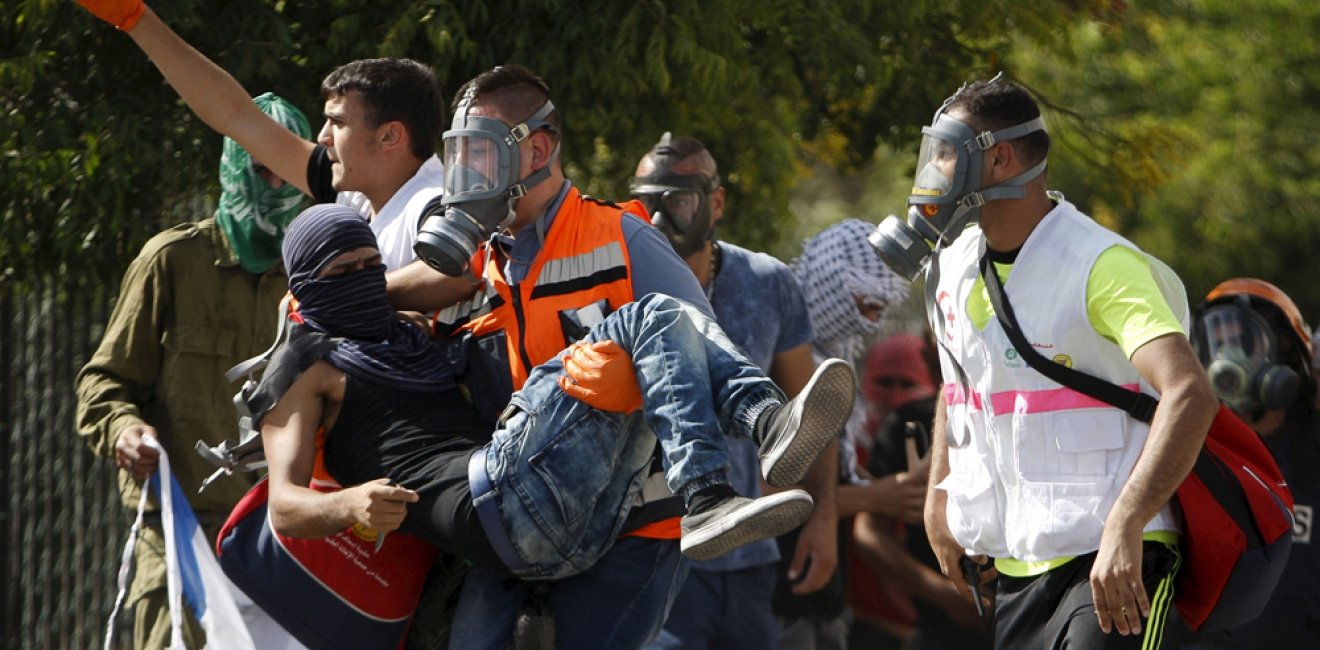While the worst Israeli-Palestinian violence in years escalates, rivaling that of 2014, the United States is sitting on the sidelines. Prudence is, of course, wise. Still, Secretary of State John Kerry, the Energizer bunny of U.S. diplomacy, is sending signals–almost all the wrong ones–that Washington is getting ready to engage. How the Obama administration should deal with the current Israeli-Palestinian conflict is far from clear. But it is clear that these four things are not helping Mr. Kerry or the situation:
Making unwise statements.
During a foreign-policy discussion sponsored by Harvard’s Belfer Center for Science and International Affairs on Tuesday, Mr. Kerry said he would not apportion blame for the outbreak in Israeli-Palestinian violence. Yet he implicitly did precisely that. “What’s happening is that, unless we get going, a two-state solution will conceivably be out of the question,” Mr. Kerry said. “There’s been a massive increase in settlements over the course of the past years, and now you have this violence, and there’s this frustration that’s going.” For an overall two-state solution, settlements are destructive and prejudicial to say the least. But to credit them publicly as the cause of the current violence endorses and legitimizes Palestinian motives for violence and may well encourage Israel to build further. Prime Minister Benjamin Netanyahu is feeling pressure in his party to punish Palestinians and to build as a response to violence. Mr. Kerry’s statement is, to put it mildly, not helpful.
Not getting the analysis right.
Much of the violence is occurring in Jerusalem and along the seam that separates the city’s east and west. There have also been incidents in Israel proper. Neither of those is in the West Bank, where much of Israel’s settlement building is taking place. The Israeli government has sealed off Palestinian neighborhoods in east Jerusalem and has yet to close off the West Bank. Certainly, there is Israeli building in Jerusalem too. But, according to the Israeli newspaper Haaretz, despite Mr. Netanyahu’s (accurate) boast that the settler population has increased by 120,000 during his tenure, it isn’t because the prime minister has been on a building spree. Between 2009 and 2014 fewer housing units were constructed than under any of Mr. Netanyahu’s recent predecessors. It’s more likely that if a specific thing had triggered the recent violence, it had more to do with increasing tensions over Jerusalem’s Haram Sharif/Temple Mount. And here, Israelis and Palestinians each bear responsibility for making the situation worse.
Throwing yourself in the middle.
Mr. Kerry’s instinct is to fix things. He appears to assume that, by the force of his personality and skills, he can persuade Palestinians and Israelis to do the right thing. This is understandable on many levels. During 20-plus years as a State Department negotiator, I labored under the same set of illusions when it came to the U.S. role in the Middle East. But failure reduces street credibility. And on this issue, the Obama administration has little credibility with either side. Mr. Kerry’s 2013-14 peace initiative ended in failure because the peace process wasn’t ready for prime time. It still isn’t. Mr. Kerry said Tuesday that he would soon travel to the region. He should lie down until the feeling passes. The U.S. needs neither another failed effort nor for the players in this issue to take our secretary of state for granted and regard him as part of the furniture.
Poor timing.
In late 2014 Mr. Kerry succeeded in helping to broker a meeting in Amman between Mr. Netanyahu and Jordan’s King Abdullah II that led to deescalating tensions over Jerusalem. Things are more complicated now. There may come a time when Mr. Kerry can play a useful role again. But the Israelis are toughening their response in Jerusalem to try to quell Palestinian attacks. Should Mr. Kerry go prematurely and the confrontation escalate, the U.S. failure will be akin to the putative emperor being exposed as wearing no clothes. Neither Mr. Netanyahu nor Palestinian President Mahmoud Abbas wants the situation to escalate. Mr. Kerry’s best chance to contribute–if that is possible–is when both sides are more desperate and call for help. So far at least seven Israelis and 29 Palestinians, including 10 alleged attackers, have been killed. However dangerous the situation is, we’re not at the tipping point yet.
The opinions expressed here are solely those of the author.
This article was originally published in The Wall Street Journals' Think Tank blog.






